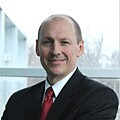When CHE Partners explore environmental contributors to cancer, they often do so with limited scientific background in the competing theories of carcinogenesis. The CHE Cancer Working Group is undertaking a series of teleconferences to explore these theories because of their direct bearing on how environmental contributors to carcinogenesis are perceived and evaluated.
On this first call speakers addressed a study released in Carcinogenesis by a task force of 174 scientists from 28 countries which has concluded that low-dose exposures to mixtures of chemicals in the environment may have the potential to contribute to cancers and go undetected. Low-dose research on endocrine disruption has laid a foundation for a shift in thinking that has far reaching implications for the way we look at environmental chemical exposures and cancer. Speakers discussed the findings of the study and explain why the researchers are now concerned that chemicals that are not individually carcinogenic may be capable of combining in ways that can contribute to the development of cancer.
Additionally, we were pleased to welcome Margaret Kripke, PhD, Chief Scientific Officer of the Cancer Prevention and Research Institute of Texas, Curt Dellavalle, PhD, a Senior Scientist with the Environmental Working Group, and Michael Gilbertson, PhD, Chief Scientist with Getting to Know Cancer to the conversation to provide comments following the presentations.
Carcinogenesis refers to the process by which normal cells and tissues are transformed into cancer. The dominant theory of carcinogenesis holds that the process is initiated by DNA mutations—sometimes called driver mutations—that gradually accumulate and ultimately reprogram a cell to undergo uncontrolled cellular proliferation. This is the somatic mutation theory (SMT) of carcinogenesis. Several alternative theories, however, are based on scientific evidence and are increasingly acknowledged. They include the tissue organization field theory (TOFT) of carcinogenesis, which holds that cancer arises from the disruption of interactions of cells with adjacent tissue. These changes in cellular communication may have various causes but, according to this theory, DNA mutations are not a necessary initiating event. Other cancer biologists believe that cancer may be caused by aneuploidy, numerical and structural abnormalities of chromosomes, rather than by mutations. Still others consider cancer to be a metabolic disease in which changes in cellular metabolism result in oxidative stress, genomic instability, and ultimately cancer.
Featured Speakers
 Leroy Lowe, President and Cofounder of Getting to Know Cancer. Leroy Lowe is a former aerospace engineer and an autodidact who studied cancer science intensively for eight years before launching Getting to Know Cancer, an independent, all-volunteer, public-interest NGO in 2011. With Theo Colborn’s encouragement, he and Michael Gilbertson (the other co-founder of his organization) recruited a large advisory board of cancer researchers from prominent scientific research institutions around the globe. Over the past three years, the organization has spearheaded "The Halifax Project", a project involving more than 350 scientists from 31 countries. The researchers were organized into two separate task forces, each comprised of 12 cross-functional teams, and the work from the project is now being published in two special issues of the peer-reviewed journals “Carcinogenesis” and “Seminars in Cancer Biology”.
Leroy Lowe, President and Cofounder of Getting to Know Cancer. Leroy Lowe is a former aerospace engineer and an autodidact who studied cancer science intensively for eight years before launching Getting to Know Cancer, an independent, all-volunteer, public-interest NGO in 2011. With Theo Colborn’s encouragement, he and Michael Gilbertson (the other co-founder of his organization) recruited a large advisory board of cancer researchers from prominent scientific research institutions around the globe. Over the past three years, the organization has spearheaded "The Halifax Project", a project involving more than 350 scientists from 31 countries. The researchers were organized into two separate task forces, each comprised of 12 cross-functional teams, and the work from the project is now being published in two special issues of the peer-reviewed journals “Carcinogenesis” and “Seminars in Cancer Biology”.
Michael Lerner, PhD, President, Commonweal moderated the conversation.
The CHE Cancer Working Group and the CHE EDCs Strategies Group are co-hosting the call. The CHE EDC Strategies Group is chaired by Carol Kwiatkowski (TEDX), Sharyle Patton (Commonweal), and Genon Jensen (HEAL). To see a full list of past calls in the series and listen to the MP3 recordings please visit the CHE Endocrine Disrupting Chemicals webpage.
